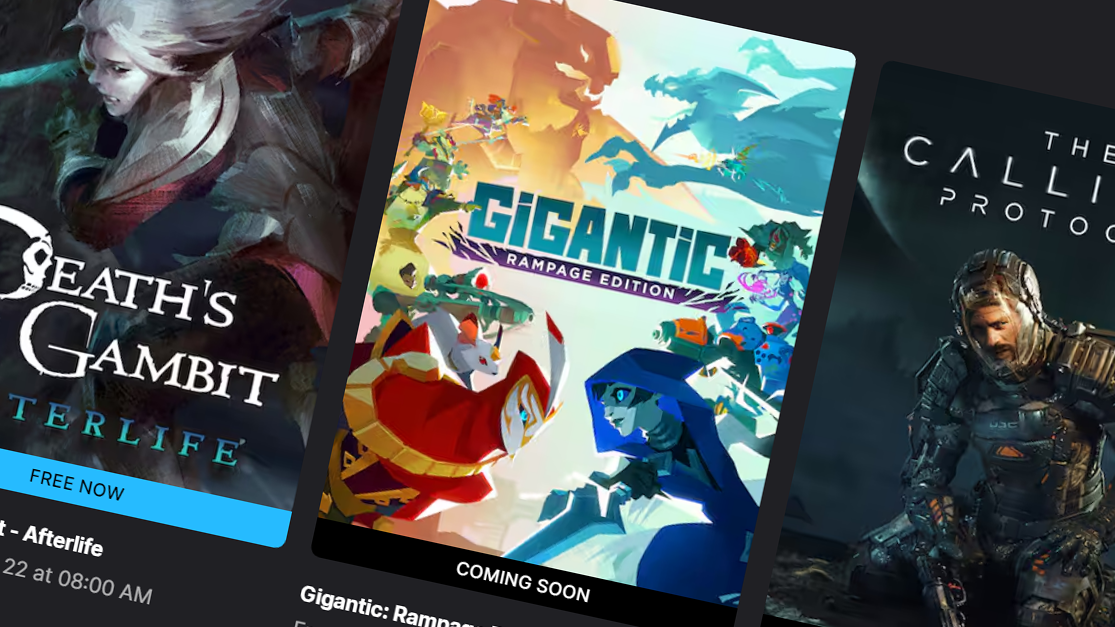Many of Epic's exclusivity deals were 'not good investments,' says Tim Sweeney, but the free games program 'has been just magical'
The most cost-effective way to get new users on the Epic Games Store has been the free games, not the exclusives.

Epic has been giving away games on the Epic Games Store since it launched at the end of 2018, enticing Steam users to install its launcher with freebies as big as Grand Theft Auto 5 and Civilization 6. More than 580 million free games were claimed just last year.
Giving away half-a-billion game copies a year, even when paying a small fraction of each copy's list price, is not cheap. Thanks to documents that came out during Epic's legal fight with Apple, we learned that the company spent $11.6 million on free games in just the first nine months of the program. Epic has been giving away games for six years now.
However, responding to a question about Epic's free game strategy on a call with press earlier this week, Epic CEO Tim Sweeney said that it's been a "very economical" user acquisition program, with the bonus that the budget goes to game developers—a group it's in a game store's interest to see thrive—rather than toward Facebook or Google ads.
"Giving away free games seems counterintuitive as a strategy, but companies spend money to acquire users into games," said Sweeney. "For about a quarter of the price that it costs to acquire users through Facebook ads or Google Search Ads, we can pay a game developer a lot of money for the right to distribute their game to our users, and we can bring in new users to the Epic Games Store at a very economical rate.
"And you might think that this would hurt the sales prospects of games on the Epic Game Store, but developers who give away free games actually see an upsurge in the sale of their paid games on the store, just because their free game raises awareness. And it's so much that often developers, when they're about to launch a new game, come with us wanting to work closely on a timed release of a free game, just to drive user awareness of their next game. That's been an awesome thing. And it's been by far the most cost effective aspect of the Epic Games Store."
Epic's other big method for attracting new Epic Games Store users has been to strike exclusivity deals with publishers like Ubisoft. It's been an unpopular strategy, and hasn't gone as swimmingly.
"We spent a lot of money on exclusives," said Sweeney. "A few of them worked extremely well. A lot of them were not good investments, but the free games program has been just magical."
The biggest gaming news, reviews and hardware deals
Keep up to date with the most important stories and the best deals, as picked by the PC Gamer team.
Back in 2021, we learned that Epic was likely to lose over $300 million on just the exclusivity deals made up to that point. Epic seems to have slowed down on pursuing exclusivity deals, although it hasn't dropped the strategy.
Epic Games Store exclusivity now also applies to games Epic is funding through the publishing division it started in 2020. The first of those Epic-published games to release was Remedy's Alan Wake 2, which hasn't made a profit yet.
The free games, though: that's a hit. If you want to see what Epic is giving away right now, and every game it's given away in the past, we're keeping track in our Epic Games Store free games list.

Tyler grew up in Silicon Valley during the '80s and '90s, playing games like Zork and Arkanoid on early PCs. He was later captivated by Myst, SimCity, Civilization, Command & Conquer, all the shooters they call "boomer shooters" now, and PS1 classic Bushido Blade (that's right: he had Bleem!). Tyler joined PC Gamer in 2011, and today he's focused on the site's news coverage. His hobbies include amateur boxing and adding to his 1,200-plus hours in Rocket League.

